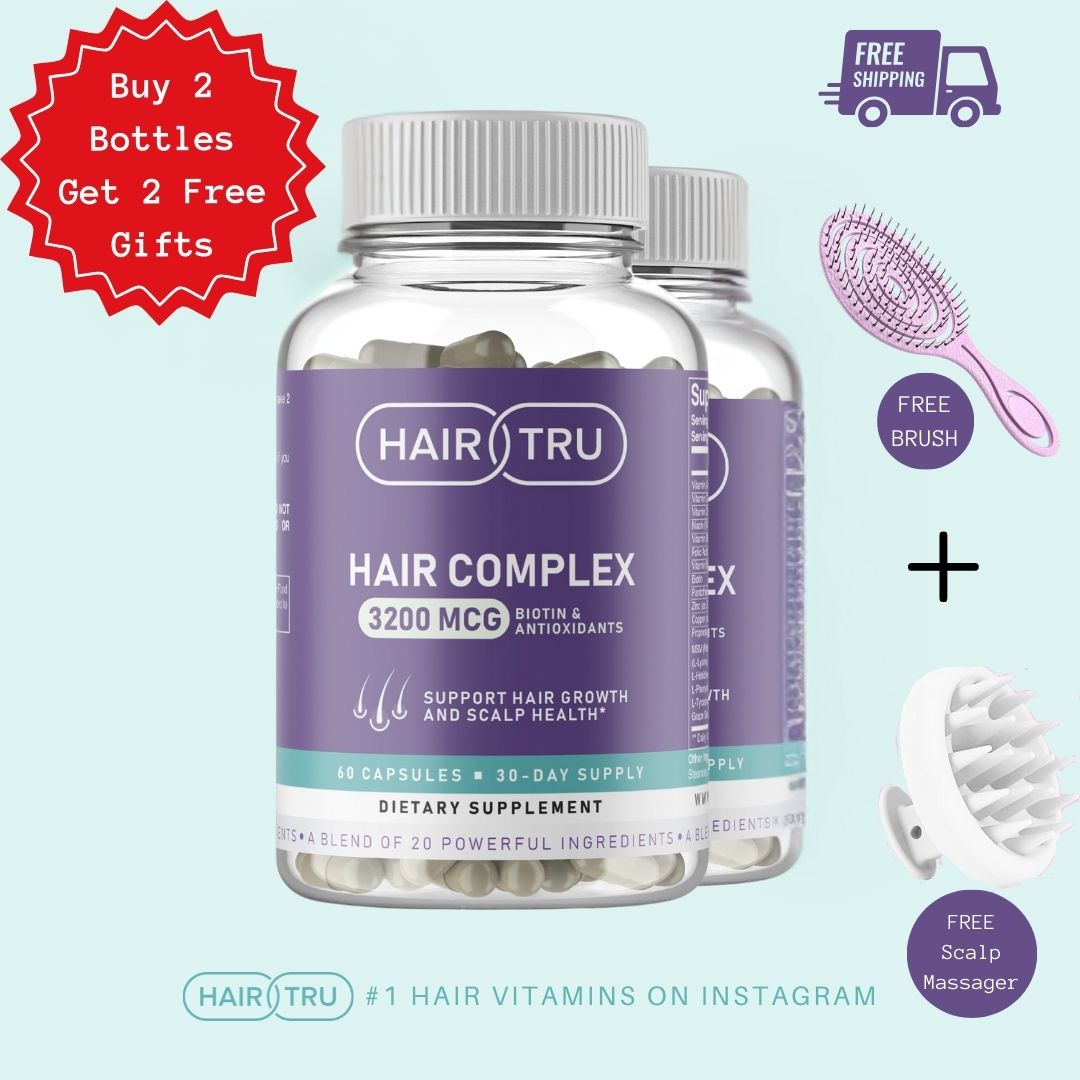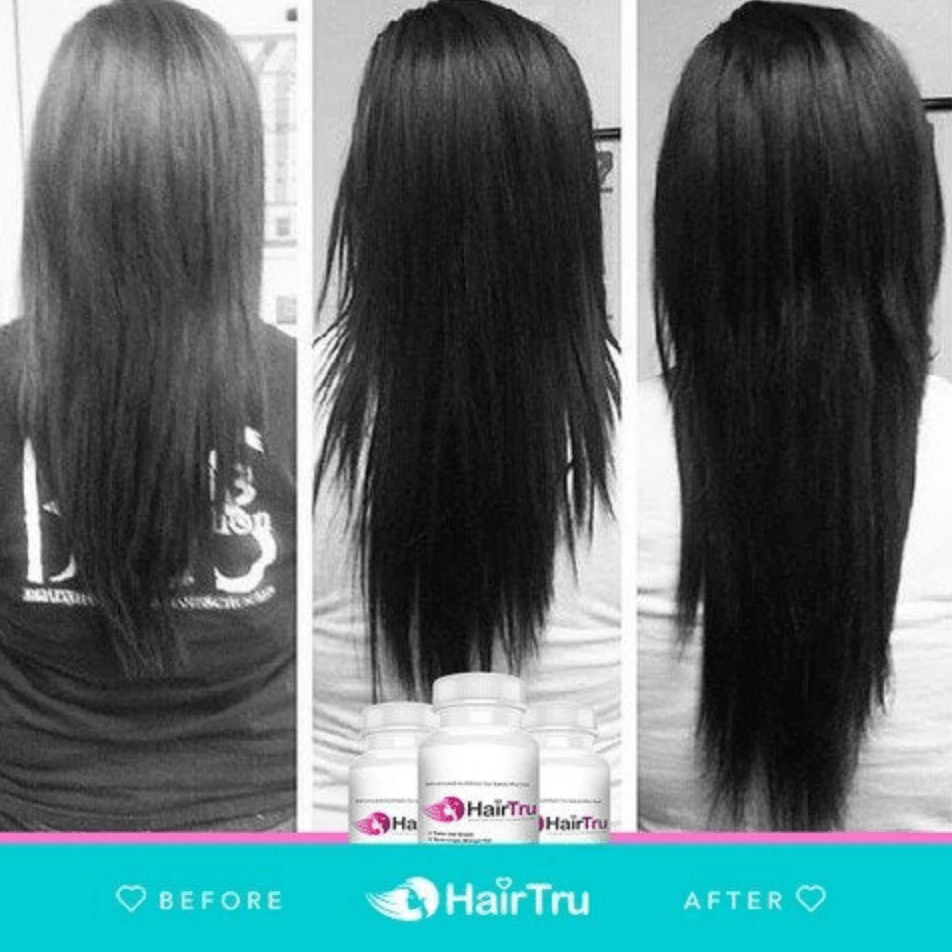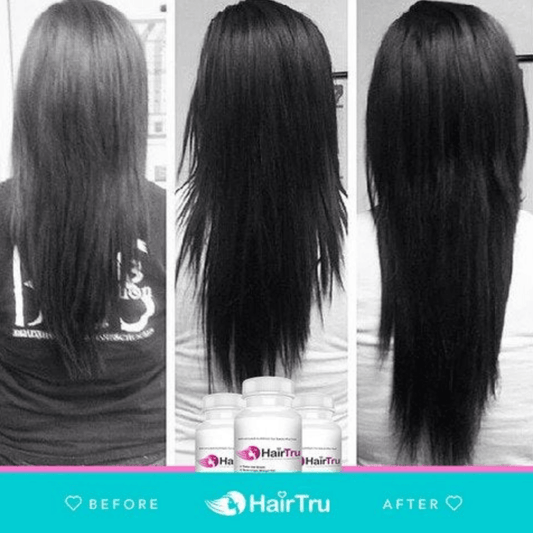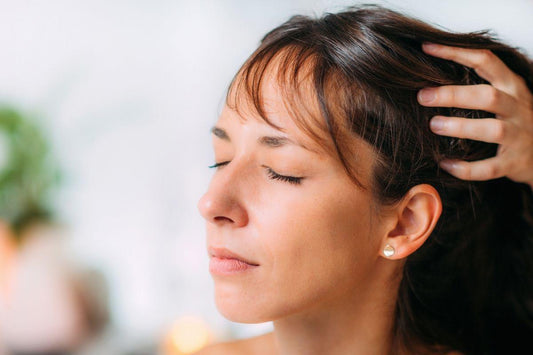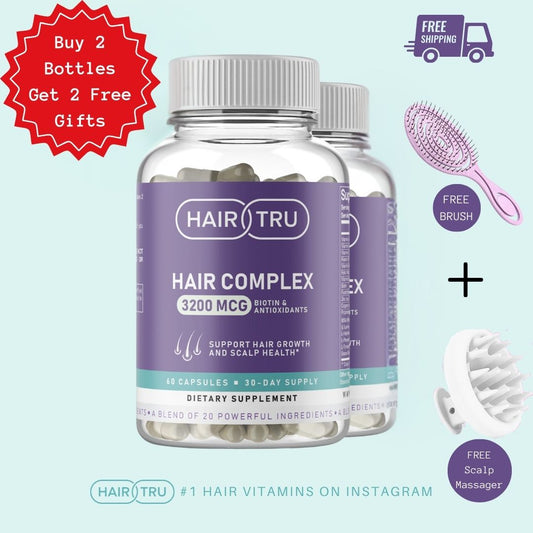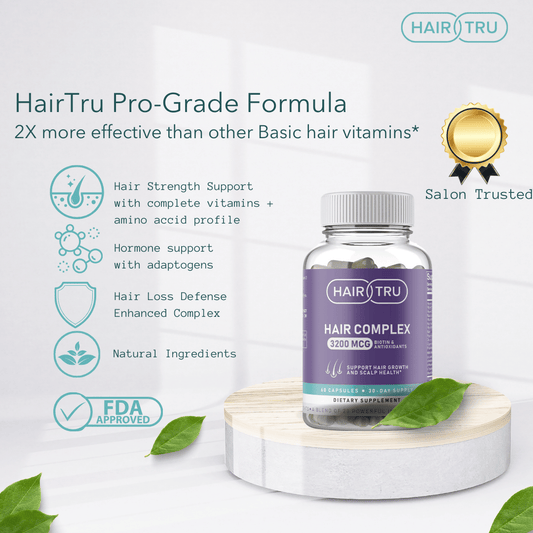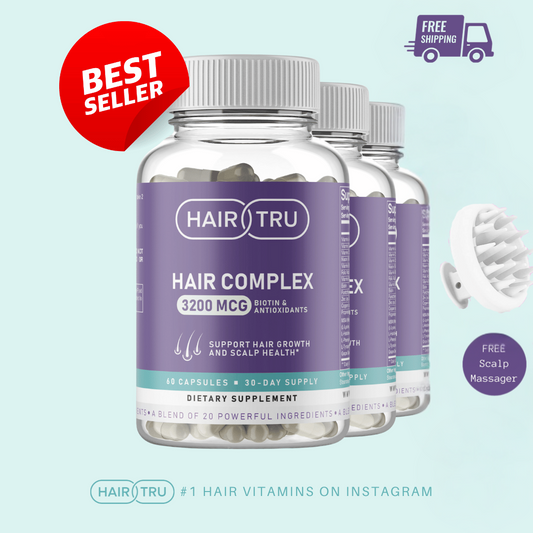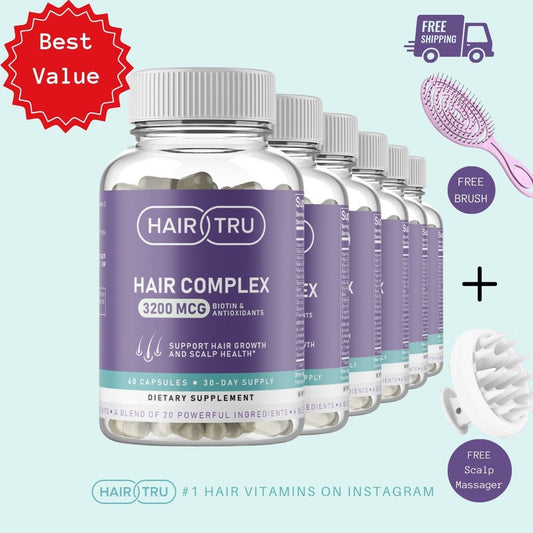Biotin and prenatal vitamins are both commonly recommended for promoting healthy hair growth. But do these vitamins really work, and which one is the better option?
In this article, we will compare the effectiveness of biotin and prenatal vitamins for hair growth, and discuss the potential risks and benefits of each.
We will also provide some tips on how to choose the right vitamin supplement for your specific needs.
What is Biotin and does it help with hair growth?
Biotin, also known as vitamin B7 or vitamin H, is a water-soluble vitamin that plays a crucial role in the metabolism of proteins, carbohydrates, and fats. It is found naturally in a variety of foods, including eggs, nuts, and leafy green vegetables.
Biotin is often taken as a dietary supplement for its potential health benefits, which include supporting healthy hair, skin, and nails.
Many people take biotin vitamins to help their hair grow, and some studies have suggested that biotin deficiency can lead to hair loss. In addition to that, studies have found that biotin can improve hair thickness and reduce shedding.
Biotin vs Prenatal Vitamins For Hair Growth
Prenatal vitamins, which are specifically formulated for pregnant women, typically contain higher levels of certain nutrients that may be beneficial for hair growth, such as folic acid, iron, and zinc.
However, there is also limited evidence to support the effectiveness of prenatal vitamins for hair growth in non-pregnant individuals. While studies found that biotin improves hair thickness and reduces shedding.
Potential risks and benefits
When it comes to potential risks and benefits, both biotin and prenatal vitamins can cause side effects in some people.
Biotin supplements can interfere with certain lab tests and may cause skin rashes, acne, and gastrointestinal upset.
Prenatal vitamins can also cause side effects, such as nausea and constipation, and may not be appropriate for individuals who are not pregnant or planning to become pregnant.
It is important to consult with a healthcare provider before starting a regimen of biotin or prenatal vitamins for hair growth. Additionally, a balanced diet and healthy lifestyle choices, such as reducing stress and avoiding excessive heat styling, can also help support healthy hair growth.
How to choose the right vitamin supplement
When choosing a vitamin supplement for hair growth, it is important to consider your overall health and nutritional needs. Here are some tips to help you choose the right vitamin supplement for your specific needs:
Consider your overall health
It is important to consider your overall health and nutritional needs when choosing a vitamin supplement, and make sure that it is part of a well-rounded health plan.
HairTru Hair Growth Vitamins improve your overall health and it has been tested by thousands of customers. Here is one of the real customer results.
Read labels and ingredient lists carefully
Not all vitamin supplements are created equal, and it is important to read labels and ingredient lists carefully to make sure you are getting a high-quality product.
Look for supplements that are made from whole food sources, and avoid those that contain added sugars, artificial colors, or preservatives.
Choose the right form and dosage
Vitamin supplements come in a variety of forms, including capsules, tablets, gummies, and liquids.
Consider your personal preferences and dietary restrictions when choosing the right form and dosage for your needs.
Conclusion
Biotin and prenatal vitamins are both commonly recommended for promoting healthy hair growth.
However, Biotin is proven to improve hair thickness and reduce shedding, while prenatal vitamins may contain higher levels of nutrients that may be beneficial for hair growth but it's not confirmed if it works for non-pregnant women.
In general, a balanced diet and healthy lifestyle choices can also help support healthy hair growth.
Frequently asked questions about Biotin and Prenatal Vitamins for Hair Growth
What is the difference between biotin and prenatal vitamins for hair growth?
The main difference between biotin and prenatal vitamins for hair growth is that biotin is a specific water-soluble B vitamin, while prenatal vitamins are a general supplement containing a range of nutrients that are typically recommended for pregnant women.
Biotin is often taken as a supplement to support healthy hair, skin, and nails, while prenatal vitamins typically contain higher levels of folic acid and other essential nutrients that are needed during pregnancy.
Are biotin vitamins good for hair growth?
Yes, biotin vitamins are good for hair growth as long as you are getting the recommended daily dosage. Biotin can help support existing hair and promote healthy growth and it improves hair thickness and reduce shedding
Be sure to consult with a healthcare professional before taking any supplement to ensure it is safe for your needs.
Can you take biotin every day?
Yes, a daily dose of biotin can be beneficial for hair growth, as long as you are not taking too much. Be sure to consult with a healthcare professional before taking any supplement to ensure it is safe for your needs.
Do biotin vitamins really work for hair growth?
Biotin supplements have been shown to be beneficial for promoting healthy hair growth. Some recent studies have shown that Biotin it improves hair thickness and reduces shedding. It also helps support existing hair as well as promote HT balance.
Be sure to consult with a healthcare professional before taking any supplement to ensure it is safe for your needs.
Can you get biotin from food?
Yes, biotin can be obtained from certain foods. Foods like egg yolks, whole grains, legumes, and nuts are great sources of biotin.
Additionally, organ meats like liver and kidney contain high amounts of biotin which can help maintain your health and hair.
Eating a balanced diet with these food groups is the best way to get the recommended daily dosage of biotin.
However, if you are looking for additional support for hair growth, supplements like Hairtru-Vitamins may be beneficial as well.
How much biotin should you take for hair growth?
A safe and effective amount of biotin for hair growth would be between 3-7mg per day. Each Hairtru-Vitamin capsule contains 3.2mg and it is recommended to take 2 capsules (6.4mg) per day.
What are the side effects of biotin overdose?
Too much biotin can lead to side effects such as an increased risk of hypoglycemic episodes, nausea, and skin rashes. Additionally, it can interfere with certain medications like antibiotics or other medications.
Are prenatal vitamins good for hair growth?
Dietary prenatal vitamins are a great way to get all the important nutrients your body needs during pregnancy. However, it's not proven that it helps non-pregnant women grow their hair.
Though prenatal vitamins come packed with many beneficial nutrients that may help increase blood circulation and HT levels.
Remember, it is important to speak with a healthcare professional before taking any supplement to ensure that it is safe for your needs.
Are prenatal vitamins safe to take while pregnant?
Dietary prenatal vitamins are important for pregnant women as they provide essential nutrients and minerals needed during pregnancy.
They can help promote healthy hair growth as well. However, it is always important to consult with a healthcare professional before taking any supplement while pregnant to ensure that it is safe for your needs.
Do prenatal vitamins have side effects?
Prenatal vitamins are generally considered safe to take, but they can cause some side effects in some individuals.
These include nausea, constipation, gas, and abdominal bloating. Additionally, in rare cases, these vitamins may lead to headaches or allergic reactions.
Is biotin better than prenatal vitamins for hair growth?
It depends on your needs and goals. Biotin helps support existing hair growth, increases hair thickness, and decreases hair loss, while prenatal vitamins can promote healthy circulation and oxygen delivery to the scalp but not confirmed if it promotes hair growth in non-pregnant women.
